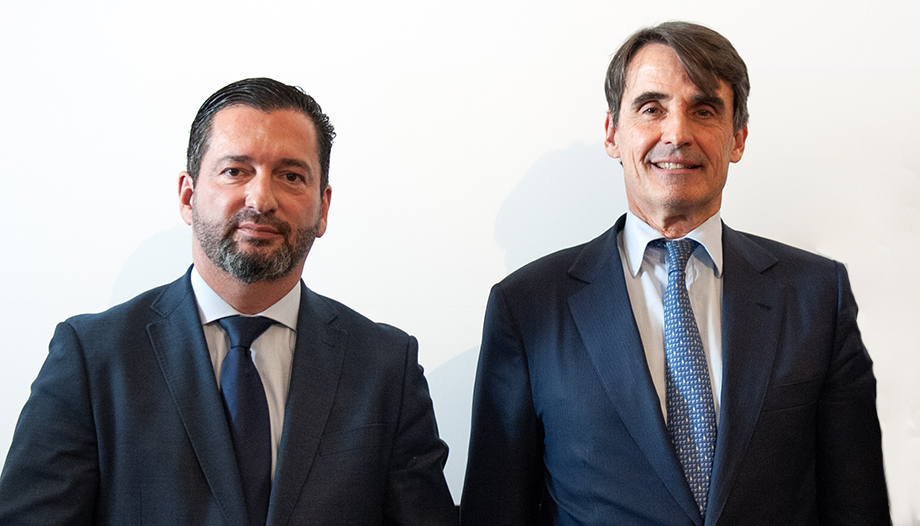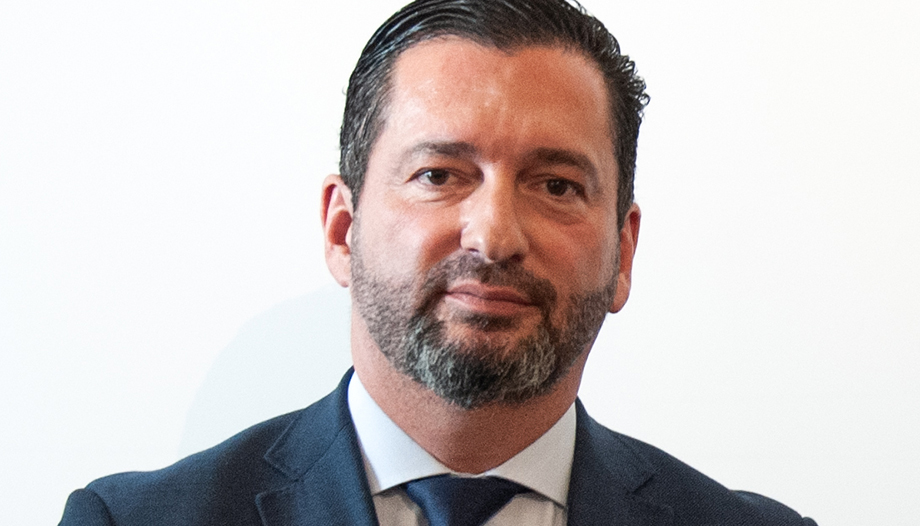Santiago Portas Alés is the director of Religious Institutions and Third Sector at Banco Sabadell. This entity has been serving dioceses, congregations, schools and all types of religious institutions for more than 45 years in terms of financial management.
With more than 20 years of experience in the sector, Santiago Portas, from Seville, is more than just the familiar face of an institution; for many parish priests, religious men and women and people in the third sector, he is a friend and a person they can trust in the complicated world of financial management of these institutions. Married and the father of two children, Portas holds a degree in Business Administration and is a graduate of IESE's Social Leadership program. He is also the academic director of the financial advisor course for Religious Institutions and the Third Sector at the Francisco de Vitoria University and a professor in the Edelvives Foundation's Expert Course in Leadership and Management of Educational Centers. In addition, he develops a wide range of volunteer and advisory work in different initiatives of the Church and Third Sector Entities.
Sabadell has been, for years, a benchmark in the financial management of religious institutions and the Third Sector. What has been the recipe for achieving this leadership?
-At Banco Sabadell we have been serving these groups in a segmented manner for more than 45 years, based on proximity and specialization, listening to their needs in order to provide agile responses through our teams of specialists distributed throughout Spain.
In my opinion, the ingredients of the recipe are great proximity, good products and an excellent team of people.
How have you managed to gain trust in an environment where it is so difficult to establish relationships?
-It is true that it is difficult to enter into the management of these customers, mainly because when they are well served they have no need for change. They prefer long-term relationships based on trust, and that is where we have been working especially in recent years.
Our teams, which only manage clients from both groups, have the appropriate training in financial matters and the specificities of these clients, and also have a sensitivity for these groups that is an added value when it comes to creating relationships and making them last over time.
We are a Bank that seeks long-term relationships and this fits perfectly with the needs of our clients.
One of the characteristics of this task in your case is the knowledge and personalized treatment of each client. How do you achieve this personalized treatment in a world that tends to the contrary, even more so in the financial sphere?
-The financial sector has hung the sambenito I think it's quite the opposite. Nowadays, clients receive a more professional and personalized attention and have at their disposal an endless number of channels to communicate with managers.
People are and will always be a differential value within any sector, we generate trust and transparency among others, and we bring commitment. In my case, I believe that these values are fundamental to strengthen relationships; if this is missing, the rest will never be able to stand out.
However, all this comes with time. I have spent more than two decades in the financial sector and the last ten years dedicated exclusively to the management of religious institutions and Third Sector entities.
This is not done "from one day to the next", as they say, the times of the "Church are different", and we must know how to cultivate virtues such as prudence, fortitude, temperance, humility, generosity, patience and, of course, gratitude.
I like to say that, from our Segment, we bring the Gospel to the world of finance. For me, the best manual for management of history, the one that should be followed by all managers, is the Bible.

What needs are addressed by the Religious Institutions and Third Sector Segment and to what type of institutions are they directed?
-We are a bank and our core is to offer financial products. Within the needs of our clients, there is a very wide range of needs due to the diversity of entities that we manage, all denominations, third sector entities, mainly foundations and NGOs of a social and welfare nature, we serve parishes, hospitals, schools, universities, residences, dioceses and congregations and the rest of the realities of the church, as well as its works.
We establish with them a framework of conditions that is very well tuned to the needs they have, and through agreements we cover everything that depends on each institution.
I like to use the simile of the umbrella, since all the institutions dependent on the main one can benefit, treating equally a Cabildo and the humblest parish within a diocese, this is fundamental.
We also include conditions for priests, religious life, workers and family members up to the first degree of the latter.
You also put a lot of emphasis on the training of bursars and administrators of these entities. How would you summarize the financial advisory courses for religious entities and the third sector?
-Training is a necessary lever for improvement in all areas of life. At the bank, we make an important effort to have a training program for all our teams to help them in their personal and professional growth.
In 2020, from the Religious Institutions Segment, we proposed to the bank's Human Resources Department to implement training that would include subjects adapted to the needs of religious institutions and third sector entities, training that would not only complement the bank's management team but would also become a tool that would provide our clients with a broad and transversal knowledge within the field of management and, in particular, finance.
As a result of this and of the collaboration with the Francisco de Vitoria University we launched the first course of Financial Advisor for Religious and Third Sector InstitutionsThe more than 1,100 students who have taken this course, a completely online course that allows them to reconcile work and family life, with seven very different and necessary modules, have been able to study the structure of the Church, taxation, patrimony, training in Social Doctrine of the Churchmanagement of development cooperation and social action projects, management of financial and social assets, and compliance and money laundering.
The proposal has been very well received by both religious institutions and third sector organizations, with students giving it a rating close to outstanding.
In scholarships, more than 500,000 euros in tuition fees have been waived for students, it was the wish of the University and the Bank not to profit from the training, it was a project from the Church and for the Church.
Soon a new call will be open, in which we expect again a large influx of students, there is still a lot of interest and need for training.
What do you think differentiates an advisory service to these entities from that which can be provided to other types of civil entities?
-There is a fundamental difference: religious institutions, although they have cif, are not businesses, there is no profit motive, their mission is not economic.
The Catholic Church is the oldest institution in the world, as I said before, its times are different and its vision is very long term, this has to be understood and mimicked within the management that has to be compatible with the bank's DNA.
I have been fortunate to work in two of the entities that have had the greatest presence and seniority in the management of these groups within the financial sphere and that have been able to fully understand the idiosyncrasies of religious institutions and bring them to the management and relationship model.
My experience makes me understand that groups with notable differences cannot be managed in the same way. At Sabadell we are specialists in adapting the product and management offer to each group, a tailor-made suit made by listening.
Our maxim is to always be close to our clients and their needs, to listen to them and to give agile and innovative answers. This has led us to be the current benchmark for management within the financial world, with simplicity, humility and always having our clients, in short, people, at the center.








